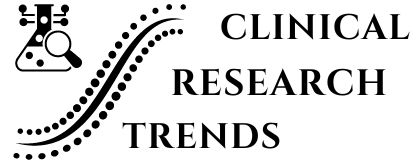The Role of Institutional Review Boards (IRBs) in Clinical Research
Clinical research is the cornerstone of medical advancements, providing the empirical foundation for developing new treatments, therapies, and a deeper understanding of various diseases and health conditions. It involves systematic investigations that aim to answer specific questions about human health, often through trials involving human participants. The significance of clinical research lies in its ability to translate basic scientific discoveries into practical applications that can improve patient care and public health. However, the inclusion of human participants in research studies brings about a myriad of ethical considerations, including issues related to consent, risk, and the protection of participants' rights and welfare.
To address these concerns, Institutional Review Boards (IRBs) were established as independent ethics committees tasked with reviewing and overseeing research involving human subjects. The role of IRBs is crucial in ensuring that clinical research is conducted in a manner that respects the dignity and rights of participants while also advancing scientific knowledge. This blog explores the importance of IRBs, their historical origins, key responsibilities, and the challenges they face in a rapidly evolving research landscape.
Understanding Institutional Review Boards (IRBs)
An Institutional Review Board (IRB) is a committee composed of various professionals, including scientists, ethicists, legal experts, and laypersons, who are responsible for reviewing research protocols to ensure the protection of human subjects involved in the research. The primary purpose of an IRB is to safeguard the rights, safety, and well-being of the participants by ensuring that the research complies with ethical standards and regulations.
The concept of IRBs emerged in response to historical events where unethical research practices led to significant harm to participants. One of the most notable events was the Nuremberg Trials after World War II, which exposed the inhumane medical experiments conducted by Nazi doctors on prisoners without their consent. These revelations led to the formulation of the Nuremberg Code in 1947, a set of ethical guidelines emphasizing voluntary consent and the necessity of avoiding unnecessary suffering in research. The Nuremberg Code laid the groundwork for future ethical standards in research involving human subjects.
Following the Nuremberg Code, the World Medical Association adopted the Declaration of Helsinki in 1964, which provided further ethical guidelines for medical research involving human subjects. The Declaration of Helsinki introduced concepts such as the requirement for independent review of research protocols, the necessity of obtaining informed consent, and the prioritization of participant welfare over the interests of science or society.
In the United States, the ethical oversight of human research was further solidified with the publication of the Belmont Report in 1979. The Belmont Report established three fundamental ethical principles for research involving human subjects: respect for persons, beneficence, and justice. These principles have become the cornerstone of the IRB review process. Respect for persons involves acknowledging the autonomy of individuals and obtaining their informed consent. Beneficence requires researchers to minimize potential harm and maximize benefits. Justice demands that the benefits and burdens of research be distributed fairly among all groups in society.
The Importance of IRBs in Clinical Research
IRBs play an essential role in ensuring the ethical conduct of clinical research, a task that encompasses several critical responsibilities. One of the primary functions of IRBs is to review and approve research protocols before any study involving human subjects can commence. This review process involves a meticulous evaluation of the proposed study's ethical implications, scientific validity, and potential risks and benefits. IRBs assess whether the research design is robust, the methods are appropriate, and the research question is scientifically significant. This rigorous review helps prevent poorly designed studies from exposing participants to unnecessary risks or yielding unreliable results.
A cornerstone of ethical research is the informed consent process. Informed consent is a fundamental ethical and legal requirement that ensures participants are fully aware of the nature of the study, its potential risks and benefits, and their rights as participants. IRBs meticulously review the informed consent documents and the process by which consent is obtained to ensure they are clear, comprehensive, and understandable. This process empowers participants to make informed decisions about their involvement in the research, thereby respecting their autonomy.
Monitoring ongoing research is another vital responsibility of IRBs. This involves overseeing the study's progress, reviewing any modifications to the research protocol, assessing reports of adverse events, and ensuring that the study continues to adhere to ethical standards. Continuing review is particularly important for studies involving greater-than-minimal risk, as it provides an ongoing safeguard for participants. By monitoring the study throughout its duration, IRBs can intervene if unforeseen risks emerge or if the study deviates from the approved protocol.
The protection of vulnerable populations is a critical aspect of the IRB's role. Vulnerable populations, such as children, pregnant women, prisoners, and individuals with cognitive impairments, may require additional safeguards to ensure their protection. IRBs pay special attention to research involving these groups, assessing the appropriateness of the research and the additional protections in place to prevent exploitation or coercion. For example, research involving children often requires parental consent and the assent of the child, depending on their age and maturity. Research involving prisoners must ensure that participation is truly voluntary and not influenced by coercion or the promise of preferential treatment.
The Process of IRB Review
The IRB review process is a structured and systematic procedure designed to ensure that all research involving human subjects meets ethical standards. The process begins with the submission of a detailed research proposal by the investigator. This proposal includes a description of the study's objectives, methodology, participant population, potential risks and benefits, and the procedures for obtaining informed consent.
Upon submission, the IRB conducts an initial review to determine the appropriate level of review required for the study. There are three main types of IRB review: full review, expedited review, and exempt review. A full review is necessary for studies involving greater-than-minimal risk, where the entire IRB committee reviews and discusses the proposal in detail. This type of review is thorough and may involve multiple rounds of questions and revisions before approval is granted.
An expedited review is conducted for research involving no more than minimal risk and includes specific categories such as studies on educational practices or the collection of data through non-invasive procedures. Expedited reviews are conducted by one or more IRB members rather than the full committee, which can expedite the review process while still ensuring that ethical standards are met.
Some research may qualify for an exempt review if it involves minimal risk and falls into specific categories defined by regulations, such as certain types of educational research or research using publicly available data. However, the term "exempt" can be misleading, as it does not mean the research is exempt from ethical oversight; rather, it is exempt from some regulatory requirements of the full IRB review process.
Regardless of the type of review, the IRB's evaluation focuses on several key criteria: the ethical considerations of the study, the scientific validity of the research design, and the risk assessment. Ethical considerations include ensuring that the study respects participants' rights and welfare, that the informed consent process is adequate, and that there are appropriate protections in place for vulnerable populations. Scientific validity ensures that the study is designed to answer meaningful research questions and that the methodology is robust enough to produce reliable results. Risk assessment involves evaluating the potential risks to participants and determining whether they are minimized and justified by the potential benefits of the research.
Continuing review and monitoring are essential components of the IRB's oversight role. Once a study is approved, the IRB continues to monitor its progress through periodic reviews. These reviews may include assessing reports of any adverse events or unexpected issues that arise during the study, as well as any modifications to the research protocol. The IRB ensures that the study continues to meet ethical standards and that participants are not exposed to unforeseen risks. This ongoing oversight is critical for maintaining the ethical integrity of the research and protecting participants throughout the study's duration.
Challenges Faced by IRBs in the Evolving Research Landscape
The landscape of clinical research is constantly evolving, presenting new challenges for IRBs in their role as ethical overseers. One of the most significant challenges is the increasing complexity of research, driven by advances in technology and new methodologies. For instance, genetic research, big data analytics, and the use of artificial intelligence (AI) in healthcare raise complex ethical and privacy concerns. These technologies often involve the collection and analysis of vast amounts of sensitive data, requiring careful consideration of issues such as data security, informed consent, and the potential for unintended consequences.
The rise of multi-site and international studies further complicates the IRB's responsibilities. These studies involve collaboration between multiple institutions and often span different countries, each with its own ethical standards, regulations, and cultural considerations. IRBs must ensure that research conducted across different sites adheres to consistent ethical standards and that participants' rights and welfare are protected, regardless of location. This requires coordination and collaboration among IRBs, researchers, and regulatory bodies across different jurisdictions, which can be challenging given the variability in international regulations and cultural norms.
Balancing the need for innovation with the protection of research participants is a delicate challenge for IRBs. As new treatments and technologies emerge, there is often pressure to expedite the research process to bring these innovations to market quickly. However, IRBs must ensure that the review process remains thorough and that participants are not exposed to undue risks. This requires a careful balancing act between facilitating scientific progress and upholding ethical standards. IRBs must also navigate the ethical implications of research that may have long-term or unknown consequences, such as genetic editing technologies like CRISPR.
Navigating conflicts of interest is another significant challenge for IRBs. Conflicts of interest can arise when researchers, institutions, or IRB members have financial or other interests in the outcomes of the research. Such conflicts can potentially bias the design, conduct, or reporting of research, thereby compromising the integrity of the study and the protection of participants. IRBs must implement policies and procedures for identifying and managing conflicts of interest to ensure transparency and maintain public trust. This includes requiring the disclosure of any potential conflicts and, when necessary, recusal of conflicted individuals from the review process.
Regulatory and ethical challenges also arise as the regulatory landscape evolves. Changes in regulations, such as updates to the Common Rule in the United States, require IRBs to stay informed and adapt their procedures accordingly. These updates may introduce new requirements for informed consent, data protection, and oversight of multi-site studies. Additionally, emerging ethical issues, such as those related to the use of AI and machine learning in healthcare, present new challenges that IRBs must address. Keeping pace with these changes and maintaining a clear understanding of evolving ethical standards is essential for IRBs to fulfill their responsibilities effectively.
Addressing public concerns and maintaining trust is a critical aspect of the IRB's role. Public trust in the research enterprise is essential for the continued participation of volunteers in clinical studies. IRBs play a key role in maintaining this trust by ensuring that research is conducted ethically and transparently. This involves not only protecting participants but also engaging with the public to explain the ethical considerations involved in research and how participants are safeguarded. Public engagement initiatives, such as community advisory boards and public forums, can help IRBs gather diverse perspectives and address community concerns, thereby enhancing public understanding and trust in the research process.
Notable Labs and the Role of Institutional Review Boards (IRBs) in Clinical Research
Clinical research is essential for advancing medical knowledge and developing new treatments and therapies. It involves systematically investigating human health to answer specific questions, often through clinical trials that include human participants. This research translates scientific discoveries into practical applications, ultimately improving patient care and public health. However, the inclusion of human participants brings ethical considerations such as informed consent, risk management, and the protection of participants' rights and welfare.
To ensure these ethical standards are upheld, Institutional Review Boards (IRBs) are established as independent committees responsible for reviewing and overseeing research involving human subjects. The primary role of IRBs is to protect participants by ensuring that clinical research is conducted ethically and in compliance with regulations. This oversight includes reviewing research protocols, ensuring informed consent, monitoring ongoing studies, and safeguarding the rights of all participants, particularly those from vulnerable populations.
The importance of IRBs has been recognized following historical unethical practices in research, leading to the establishment of ethical guidelines such as the Nuremberg Code, Declaration of Helsinki, and the Belmont Report. These guidelines emphasize the need for voluntary consent, risk minimization, and the equitable distribution of research benefits and burdens.
At Notable Labs, we are committed to advancing medical research while upholding the highest ethical standards. We recognize the vital role IRBs play in ensuring that our clinical studies respect the dignity and rights of participants, address potential risks, and contribute responsibly to scientific progress. By working closely with IRBs, Notable Labs continues to prioritize ethical conduct in all our research endeavors, fostering public trust and advancing knowledge in the field of healthcare.
Future Directions for IRBs
As the research landscape continues to evolve, IRBs must adapt to meet new challenges and enhance their effectiveness. One promising direction is the embrace of new technologies and methodologies in the IRB review process. For example, electronic systems for submitting and reviewing research proposals can streamline the review process, making it more efficient and accessible. These systems can facilitate communication between researchers and IRBs, provide a centralized platform for managing documents, and reduce administrative burdens. Additionally, data analytics and AI can assist IRBs in assessing the ethical implications of complex studies, identifying potential risks, and monitoring ongoing research more effectively.
Enhancing transparency and public engagement is another important direction for IRBs. By increasing transparency in their decision-making processes and communicating more openly with the public, IRBs can build trust and ensure that participants and the public understand the ethical considerations involved in research. Public engagement initiatives, such as community advisory boards, public forums, and educational campaigns, can help demystify the IRB process and make the research community more accessible to the public. These efforts can also help IRBs gather valuable feedback and insights from the community, which can inform their decision-making and improve the ethical oversight of research.
Strengthening global collaboration and harmonization of ethical standards is crucial for IRBs, especially as international and multi-site studies become more common. IRBs can benefit from sharing best practices and collaborating with their counterparts in other countries to develop consistent ethical guidelines and standards. This can help ensure that participants in different regions receive the same level of protection and that ethical standards are upheld across borders. International organizations, such as the World Health Organization (WHO) and the Council for International Organizations of Medical Sciences (CIOMS), play a key role in facilitating these efforts by providing guidance and fostering collaboration among IRBs and regulatory bodies worldwide.
In conclusion, Institutional Review Boards (IRBs) play a vital role in clinical research, ensuring that studies involving human participants are conducted ethically and in compliance with regulatory standards. Their responsibilities include reviewing research protocols, ensuring informed consent, monitoring ongoing studies, and protecting participants, particularly vulnerable populations. As the research landscape continues to evolve, IRBs face challenges such as increasing complexity, balancing innovation with participant protection, navigating conflicts of interest, and addressing regulatory and ethical changes. By embracing new technologies, enhancing transparency and public engagement, and strengthening global collaboration, IRBs can continue to fulfill their mission and uphold the highest ethical standards in clinical research.
The role of IRBs in protecting participants and maintaining the integrity of the research process is indispensable. As research continues to advance, it is essential for IRBs to adapt and evolve to meet new challenges, ensuring that the rights and welfare of participants are always safeguarded. By doing so, IRBs contribute to the ethical conduct of research and the advancement of scientific knowledge, ultimately benefiting society as a whole. This commitment to ethical research practices is crucial not only for the protection of participants but also for maintaining public trust and confidence in the research enterprise. As we look to the future, the continued evolution and strengthening of IRBs will be essential in addressing new ethical challenges and supporting the responsible conduct of research in a rapidly changing world.










Join Our New Letter










